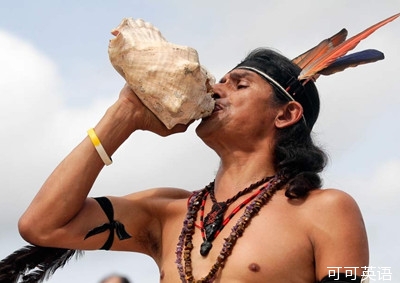(单词翻译:单击)
Message from Ms Irina Bokova, Director-General of UNESCO, on the Occasion of the International Day of the World’s Indigenous Peoples
教科文组织总干事伊琳娜·博科娃在世界土著人民国际日的致辞
9 August 2013
2013年8月9日
In 2013, the International Day of the World’s Indigenous Peoples celebrates the importance of constructive alliances, agreements and arrangements to protect the rights of indigenous peoples.
2013年的世界土著人民国际日赞扬建设性联盟、协定和安排对保护土著人民的权利所具有的重要意义。
In a world undergoing rapid environmental change and societies experiencing deep transformation, solidarity must be our guiding principle—solidarity embodied in alliances amongst indigenous groups and with nonindigenous partners— to safeguard and promote unique identities, languages, knowledge systems and worldviews. This is especially important as we shape the contours of a new global development agenda to follow 2015.
在环境急剧变化和社会深刻转型的当今世界,团结互助必须成为我们的指导原则——体现在土著群体之间以及与非土著伙伴的联盟中——以保护和促进独有的身份特征、语言、知识系统和世界观。在我们绘制2015年后新的全球发展议程图景时,团结互助尤为重要。
For UNESCO, global sustainability must build on foundations that are local, that reflect the views and needs of local communities, including those of indigenous peoples. This is why we seek to integrate culture at the heart of all development efforts—as a wellspring of identity and cohesion and a source of creativity and innovation. No society can flourish without culture—no development can be sustainable without it. Indigenous peoples know this better than most, as custodians to rich linguistic and cultural diversity, carrying unique knowledge of sustainable living and respect for biodiversity.
对教科文组织而言,全球的可持续性必须建立在地方的,并体现地方社区,包括土著居民社区的观点和需求的基础上。为此,我们努力将文化纳入发展领域的活动--因为文化带来特征与凝聚力,也是创造和创新的源泉。缺失了文化,社会无法繁荣,发展不可持续。土著人民比我们大多数人更了解这一点,因为他们拥有极其丰富的语言和文化多样性,掌握可持续生计的独特知识,并尊重生物多样性。
We need new alliances to take this vision forward—across the United Nations system, with Member States, within and between societies. This is why the Intergovernmental Panel on Climate Change (IPCC) is actively seeking engagement with indigenous peoples and local communities. Through our Local and Indigenous Knowledge Systems programme, UNESCO is leading inter-agency efforts to include indigenous knowledge, alongside science, in the IPCC’s 5th Assessment Report Climate Change: Impacts, Adaptation and Vulnerability, to be released in 2014. Similarly, the newly-established Intergovernmental Platform on Biodiversity and Ecosystems Services (IPBES) recognizes the importance of biodiversity to indigenous peoples and their vital contribution to its conservation. On behalf of the IPBES Secretariat, UNESCO is leading the work to develop constructive and mutually-beneficial arrangements with indigenous peoples and local communities.
为了推进这一愿景,我们需要在整个联合国系统,与会员国一起,以及在各社会内部和各社会之间建立新的联盟。这就是政府间气候变化问题小组积极寻求土著民众和地方社区参与的原因所在。通过其“当地和本土知识体系计划”,教科文组织牵头开展政府间活动,将土著知识与科学一起纳入将于2014年发行的政府间气候变化问题小组的第五期评估报告:《气候变化:影响、适应和脆弱性》。同样,新成立的“生物多样性和生态系统服务政府间科学政策平台”承认生物多样性对土著人民的重要意义,以及土著人民对保护生物多样性作出的重要贡献。教科文组织代表“生物多样性和生态系统服务政府间科学政策平台”秘书处,牵头与土著人民和地方社区制定建设性和互惠互利的安排。
The United Nations 2007 Declaration on the Rights of Indigenous Peoples recognized that “respect for indigenous knowledge, cultures and traditional practices contributes to sustainable and equitable development and proper management of the environment.” To build on this vision, and to protect the rights of all indigenous peoples, we need new alliances, agreements and arrangements for global sustainability. This is UNESCO’s pledge on International Day of the World’s Indigenous Peoples.
2007年《联合国土著人民权利宣言》承认:“要尊重土著知识、文化和传统习俗对可持续和公平发展以及对妥善管理环境作出的贡献。”在此基础上,为了保护所有土著人民的权利,为了全球的可持续性,我们需要有新的联盟、协定和安排。这就是教科文组织在世界土著人民国际日做出的保证。

更多精品翻译素材,敬请关注可可英语。


